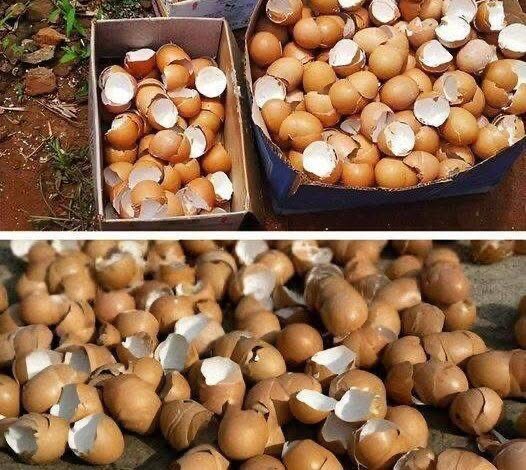
Don’t Toss Those Eggshells! 7 Smart Reasons to Keep Them Around
If your household goes through eggs as quickly as mine, you probably end up with a mountain of empty shells. Most people toss them in the trash without a second thought, but those fragile little fragments are far more valuable than they seem. Eggshells are a natural, chemical-free way to improve soil, protect plants, and even attract helpful wildlife to your garden.
Here are 7 clever and practical ways to turn kitchen scraps into garden gold.
1. Keep Pests Away Naturally
Slugs and snails can wreak havoc on tender seedlings and leafy greens. Instead of reaching for chemical repellents, try scattering crushed eggshells around the base of your plants. The jagged edges act like tiny barbed wire for soft-bodied pests, making it too uncomfortable for them to cross. This simple trick helps safeguard your veggies and flowers—no harsh chemicals required.
2. Deter Deer from Your Garden
If you live near wooded areas, deer can treat your garden like an all-you-can-eat buffet. Surprisingly, deer dislike the scent of eggshells. By sprinkling crushed shells around vulnerable plants, you create a natural, scent-based barrier that encourages them to move along and find food elsewhere.
3. Attract Birds—Your Garden’s Best Helpers
Birds are natural pest-control allies, feasting on aphids, caterpillars, and beetles. But did you know many bird species also crave calcium? Crushed, sterilized eggshells are a perfect supplement for them. Simply bake the shells in the oven for 10 minutes at 200°F (to kill bacteria), then sprinkle them across your yard or near feeders. You’ll not only attract beautiful birds but also improve pest management in your garden.
4. Boost Soil Health
Eggshells are made up of nearly 95% calcium carbonate, an essential nutrient that plants need to build strong cell walls. When ground and added to garden beds, the shells gradually enrich the soil, helping roots grow stronger and making plants more resilient. Think of it as giving your soil a free vitamin boost.
5. Prevent Blossom-End Rot in Veggies
If you’ve ever grown tomatoes, peppers, or eggplants, you may have noticed ugly dark spots forming at the bottom of the fruit. This condition, called blossom-end rot, is often caused by calcium deficiency. By burying crushed eggshells in the soil beneath these plants, you provide a slow-release calcium source that helps reduce the risk of rot and ensures a healthier harvest.
6. Balance Soil pH
Overly acidic soil can stress plants and limit nutrient absorption. Since eggshells are alkaline, they naturally help raise the soil’s pH as they decompose. This makes the environment more hospitable for plants that prefer neutral to slightly alkaline soil conditions—like beans, spinach, and many herbs.
7. Compost Gold
Last but definitely not least—toss those shells into your compost bin! Crushed eggshells break down over time, adding essential minerals like calcium, magnesium, and potassium to your compost. Just remember to rinse them first to prevent odors and unwanted critters. When worked back into your garden, compost enriched with eggshells creates nutrient-dense soil that your plants will love.
Final Thought
Next time you’re cracking eggs for breakfast, think twice before tossing those shells into the trash. From deterring pests to enriching your soil and feeding wildlife, eggshells are a surprisingly powerful ally for any gardener. These simple, eco-friendly tricks not only save money but also help you grow healthier, more productive plants—proving that sometimes the best gardening tools are hiding right in your kitchen.